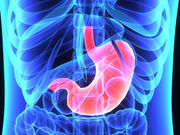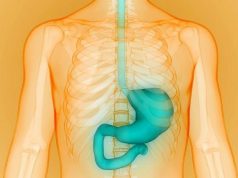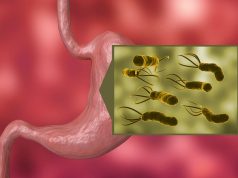Proton pump inhibitor therapy may also be associated with increased risk of gastric cancer
WEDNESDAY, Nov. 23, 2016 (HealthDay News) — Long-term proton pump inhibitor (PPI) use is associated with increased risk of fundic gland polyps (FGPs), and may be associated with gastric cancer, according to a review published in the December issue of Clinical Gastroenterology and Hepatology.
An Tran-Duy, Ph.D., from Maastricht University Medical Center in the Netherlands, and colleagues conducted a systematic review and meta-analysis to examine the effects of PPI therapy on the risks of FGPs and gastric cancer. Data were analyzed from 12 studies involving more than 87,324 patients, including one randomized controlled trial reporting on gastric polyps; six cohort studies and one case-control study on FGPs; and one cohort study and three case-control studies on gastric cancer.
The researchers found that the pooled odds ratios for FGPs were 1.43 in fixed-effects models and 2.45 in random-effects models. From each model, the pooled risk ratio for gastric cancer was 1.43. Significant heterogeneity was noted among studies reporting on FGPs, but not in studies reporting on gastric cancer.
“Based on a systematic review with meta-analysis, long-term use of PPIs (≥12 months) is associated with an increased risk of FGPs,” the authors write. “PPI therapy might also increase the risk of gastric cancer, but this association could be biased, because of the limited number of studies and possible confounding factors.”
Full Text
Copyright © 2016 HealthDay. All rights reserved.








